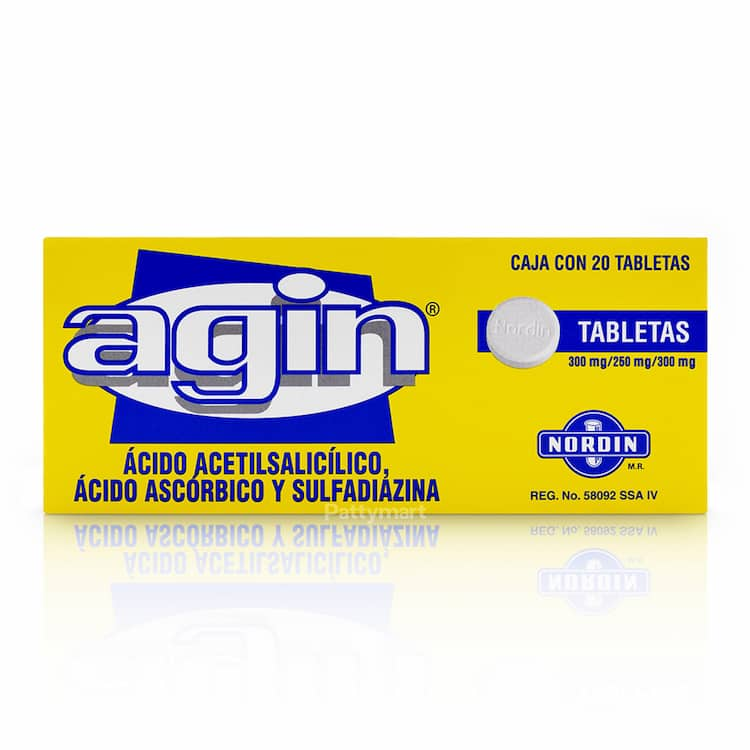Agin Pills (Aspirin, Ascorbic acid, Sulfadiazine)
Agin pills are a drug belonging to the NSAID type of drug.
It is often used in the case of angina (throat inflammation) of the throat and to reduce other pains.
The active ingredients in the drug help to reduce the pain by dilating the blood vessels in the throat.

Dosage And Administration
The drug should be used only in children over 12 years of age and adults.
Swallow the tablet whole with a glass of water, without chewing or keeping it in your mouth until it dissolves.
The dose should be determined only by the doctor.
Breastfeeding and pregnant women should not use it without consulting a doctor, as the drug contains antibiotics. It may take several hours for the drug to take effect.
If you do not see an improvement in your condition within two days, contact your doctor.
Things to consider before using Agin pills:
Do not use this medicine if you have any of the following conditions:
- Sensitivity to any antibiotic
Side Effects Of Agin pills
The risk of side effects is low with this drug.
However, it should be noted that some people may react differently to drugs.
If any of the side effects listed below occur, stop using this medicine and contact your doctor:
- Nausea
- Vomiting
- Diarrhea
- Epigastralgia
- Gastritis
- Exacerbation of peptic ulcer
- Stomach bleeding
- Petechiae
- Dizziness
- Rash
- Urticaria
- Tinnitus
Long-term and high use can induce bronchospasm, especially if you have asthma and allergies.
Take care not to exceed the maximum dose of 800 mg per day.
Increasing the dose increases the risk of side effects and seriously threatens your health.
Things To Consider When Using
If you have the conditions listed below, talk to your doctor before using this medicine:
- If you are hypersensitive (allergic) to other painkillers, rheumatism drugs, anti-inflammatory drugs and other allergens
- If you have complaints such as allergies (e.g. skin reactions, itching, hives), asthma, hay fever, nasal polyps (soft tissue that develops on the inner surface of the nose), respiratory diseases,
- If you are taking anticoagulant drugs at the same time
- If you have impaired kidney function or cardiovascular system (eg, renal vascular disease, heart failure, low blood volume, major surgery, blood infection, major bleeding events).
- If you have liver dysfunction
- If you have had a digestive system disease such as ulcer (wound) or bleeding,
- If you have gout or a predisposition to gout,
- If you are going to have any surgery, including tooth extraction. (Because if you have used aspirin, your bleeding tendency may increase. In such a case, inform your doctor or dentist.),
- If you have a severe deficiency of glucose-6-phosphate dehydrogenase (an enzyme vital in blood sugar metabolism): acetylsalicylic acid can cause rapid breakdown or breakdown of red blood cells or a certain form of anemia. This risk may be increased by factors such as high dose, fever or acute infection.
- If you have an allergy to the sulfadiazine component of the drug
- Tell your doctor that you are taking medicines (prescription or over-the-counter) especially anticoagulants such as warfarin (Coumadin), diabetes medicines, diuretics (‘water pills’) and vitamins.
- Consult your doctor if you are pregnant, planning to become pregnant or are breastfeeding.
- If you have hyperoxaluria (excess oxalic acid in the urine)
Our article about the M523 Pill may also attract your attention.
